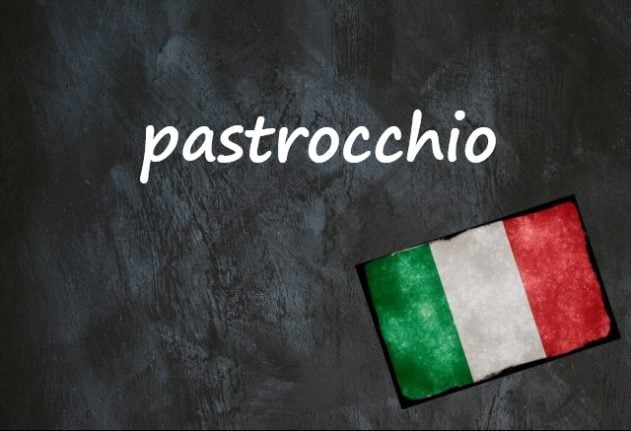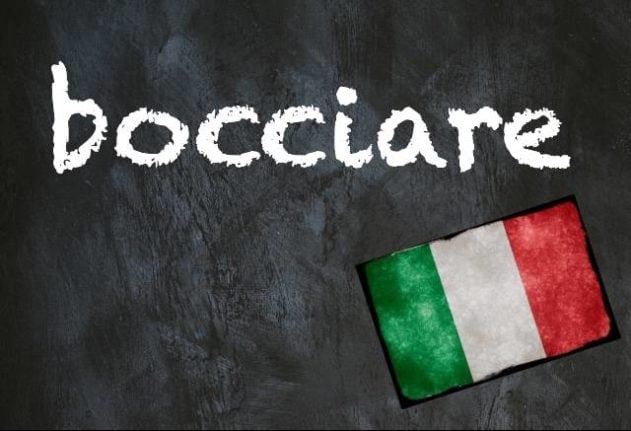Today’s word comes courtesy of our reader Umberto Thiene, who remembers it very clearly from his childhood.
“When my parents would not let me get away with being naughty, I would retaliate by saying ‘allora faccio un pastrocchio!’ and like the proper little sh*t that I was, would make a mess with my paints and pens and of course, I got into more trouble,” he writes.
As little Umberto’s terror tactics demonstrate, un pastrocchio (pronounced “pas-STROK-kio”) is a right old mess.
È proprio un bel pastrocchio!
It’s a real mess!
It can be literal, like the havoc he wreaked with his paintbox, or figurative, like when you’re really stumped.
Come si fa a risolvere questo pastrocchio?
How do we fix this mess?
The word is a Venetian variation of pasticcio, which gourmands will recognise as the term for ‘pie’ (it comes from the same root as pasta, ‘dough’ or ‘pastry’), but which can also mean ‘bother’, ‘trouble’ or ‘confusion’. Think of it as the equivalent of our food-related idiom ‘in a pickle’.
Non avevo intenzione di metterti nei pasticci.
I didn’t mean to put you in a pickle (literally: to put you in the pies).
You can use either version, but here’s why Umberto has a soft spot for pastrocchio: “I love the word ‘pastrocchio’ as it sounds like what it’s supposed to mean,” he says. “When it’s said with passion like Italians usually do, it can emphasise the state of the mess or stuff-up.”
Do try and stay out of trouble, folks; but if you can’t, at least now you have a good word for it.
Do you have a favourite Italian word you’d like us to feature? If so, please email us with your suggestion.




 Please whitelist us to continue reading.
Please whitelist us to continue reading.
Member comments